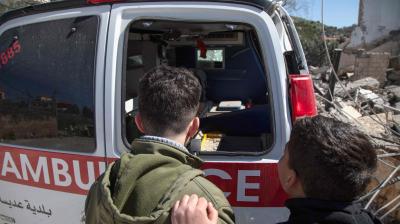Croatia helps migrants with ‘taste of home’
In a family kitchen on the hilly outskirts of Zagreb, a group of chefs from Nigeria, Ethiopia and Croatia sprinkle salt into flour and grate orange zest as they whip up a range of breads from their ho
In a family kitchen on the hilly outskirts of Zagreb, a group of chefs from Nigeria, Ethiopia and Croatia sprinkle salt into flour and grate orange zest as they whip up a range of breads from their home countries.
The bakers belong to “Okus Doma” or “Taste of Home”, a project that helps migrants and refugees to start new lives and make friends in Croatia through cooking together and sharing recipes.
“Settling down in a new country is very difficult,” said 34-year-old David Ajobi, a medical student from Abuja, as he kneaded dough for Nigeria’s popular “agege” bread, a recipe taught to him by his mother. “Okus Doma wants to bring people together, they can come out and show their skills and show what they can contribute,” he told AFP over a table scattered with mixing bowls, rolling pins and jars of ingredients.
Croatia, where memories of a brutal 1990s war are still vivid, is currently known as a quick transit point for refugees and migrants.
The Western Balkan nation has seen hundreds of thousands from the Middle East, Asia and Africa cross its borders since mid-September on their way to start new lives in more prosperous northern Europe.
But Okus Doma was set up to welcome newcomers who end up staying longer, whether they are fleeing war or persecution, coming for work or study, or moving for family reasons.
Since it began in 2006, initially to document refugees’ memories, the project has brought together people and dishes from around the world, including Syria, Afghanistan, Iraq, Iran, Libya, Zimbabwe and Algeria.
Those in the collective, including Croatian volunteers, share food and stories in home kitchens around the city, take part in workshops and festivals and prepare dishes on informal catering requests.
They now have big plans to expand their culinary activities with the eventual goal of opening a restaurant, serving favourites such as Afghan pilau, Kurdish falafel and North African couscous. The partly EU-funded project also tries to raise awareness and understanding among Croatians, whose homogeneous society of 4.3 million people is predominantly white and Roman Catholic. “Institutions are very traditional and not very open... People aren’t used to seeing different skin colours,” said Emina Buzinkic, a local activist involved in the initiative since its early days.

















